Text
Round 1, Matchup 73: II.i.10 vs V.iii.7
4 notes
·
View notes
Text
Round 1, Matchup 72: II.i.9 vs III.viii.20
2 notes
·
View notes
Text
Round 1, Matchup 71: II.i.8 vs IV.xi
5 notes
·
View notes
Text
Round 1, Matchup 70: II.i.7 vs IV.vi.2
#Les miserables#les mis#Battle of Waterloo#Bastille Elephant#Gavroche#The second one.#The Brick#Others
6 notes
·
View notes
Text
Round 1, Matchup 69: II.i.6 vs V.viii
3 notes
·
View notes
Text

#Les miserables#les mis#Self Reblog#Jean Valjean#The Convent#On the Run#The Brick#Lynd Ward#Illustration#Les Mis Letters
17 notes
·
View notes
Note
What do you think of Sister Simplice?
I have not gotten to that part of Les Mis on my reread, so I don't remember her too well 😅 but didn't she lie to Javert despite hating lies? That makes her kinda cool in my opinion I guess!
4 notes
·
View notes
Text

Delaney Cosette I would die for you🙏
35 notes
·
View notes
Text





The Song Continues. Volume 2, Book 5, Chapter 6.
Clips from <Il cuore di Cosette>.
#Les miserables#les mis#My Post#Jean Valjean#Cosette#The Lark#Little Mlle. Lanoire#Father and daughter#Owl and Wren#On the Run#The Convent#The Brick#Il cuore di Cosette#Les Mis Letters
4 notes
·
View notes
Text


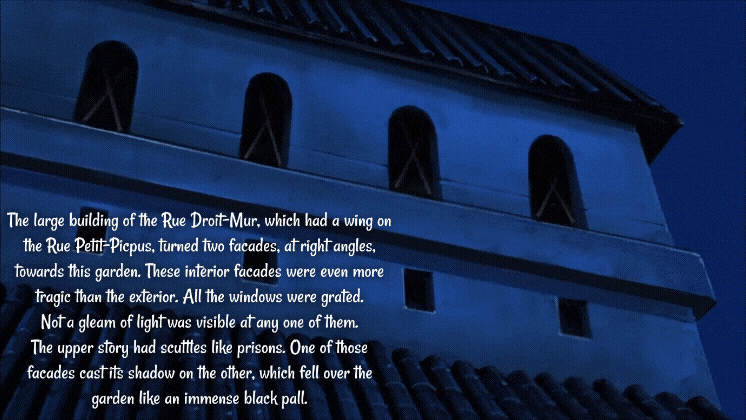
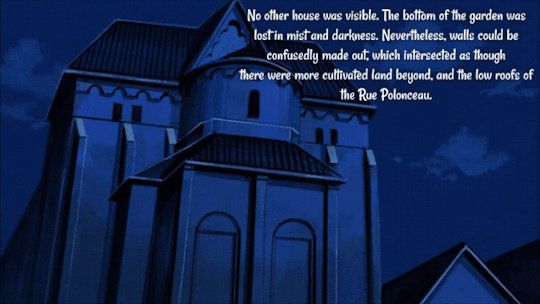
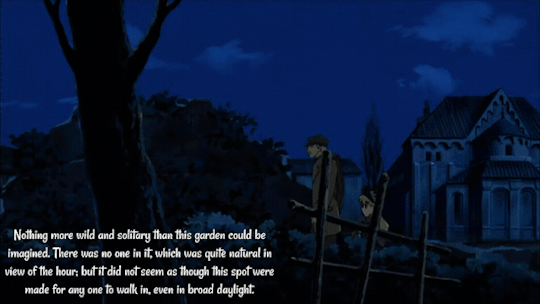
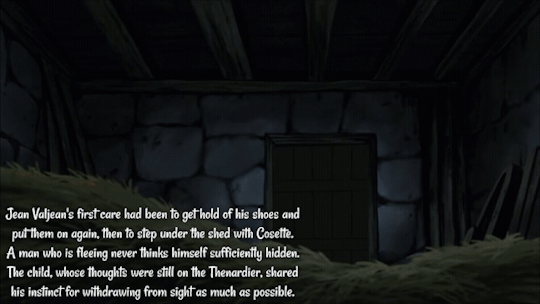
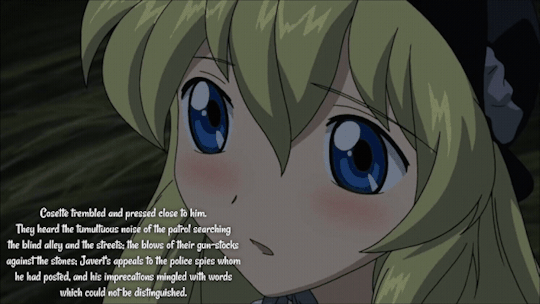
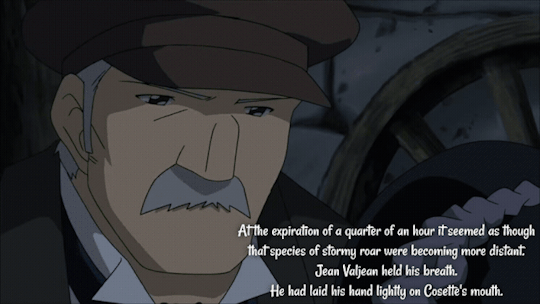
The First Entrance of Valjean and Cosette to the Petit-Picpus Convent. Volume 2, Book 5, Chapter 6.
Clips from <Il cuore di Cosette>.
#Les miserables#les mis#Self Reblog#Jean Valjean#Cosette#The Lark#Little Mlle. Lanoire#Father and daughter#Owl and Wren#On the Run#The Convent#The Brick#Il cuore di Cosette#Les Mis Letters
11 notes
·
View notes
Text
WHAT DO U MEAN JEAN VALJEAN TOLD MARIUS EVERYTHING AND HE HATES IT AND NOW HE SEES COSETTE BUT DOESNT WANNA BE INVOLVED BUT STILL LOVES HER AND ITS AWKWARD AND SHE DOESNT GET IT AND SHE WANTS HIM TO BE HER FATHER WND HE CANT NOW AND SHES SAD AND HES SAD AND THEY LOVE EACH ORHER BUT JEAN VALJEAN CANT BE PART OF HER AWESOME LIFE BC HES A CONVICT AND HAS A CONSCIOUSNESS THAT SAYS ITS BAD WHAT THE FUCK 1255-1266 OF LES MIS WHAT IS THIS
30 notes
·
View notes
Text
LM 2.5.6
the reverse of valjean’s flight from the bishop: over the wall; through the garden; and into the place of worship
"deaf stones" is (i think) a reference to habakkuk 2:19. that chapter also has the verses "Woe to him that buildeth a town with blood, and stablisheth a city by iniquity" (fairly standard les mis) and "What profiteth the graven image that the maker thereof hath graven it; the molten image, and a teacher of lies, that the maker of his work trusteth therein, to make dumb idols?" i know hugo had issues with the catholic church, and i wonder if he took the protestant view that catholicism was bordering on idolatry
i really don’t think you can hear the difference between a virgin’s voice and a non-virgin's voice
#Les miserables#les mis#Jean Valjean#Cosette#The Lark#Little Mlle. Lanoire#Father and daughter#Owl and Wren#On the Run#The Convent#Nuns#The Brick#Meta#Les Mis Letters
17 notes
·
View notes
Photo









LES MIS LETTERS IN ADAPTATION - The Beginning of an Enigma, LM 2.5.6 (Les Miserables 1925)
All at once, in the midst of this profound calm, a fresh sound arose; a sound as celestial, divine, ineffable, ravishing, as the other had been horrible. It was a hymn which issued from the gloom, a dazzling burst of prayer and harmony in the obscure and alarming silence of the night; women’s voices, but voices composed at one and the same time of the pure accents of virgins and the innocent accents of children,—voices which are not of the earth, and which resemble those that the newborn infant still hears, and which the dying man hears already. This song proceeded from the gloomy edifice which towered above the garden. At the moment when the hubbub of demons retreated, one would have said that a choir of angels was approaching through the gloom.
Cosette and Jean Valjean fell on their knees.
They knew not what it was, they knew not where they were; but both of them, the man and the child, the penitent and the innocent, felt that they must kneel.
#Les Miserables#Les Mis#Self Reblog#Jean Valjean#Cosette#The Lark#Little Mlle. Lanoire#Father and daughter#Owl and Wren#On the Run#The Convent#The Brick#1925 film#Les Mis Letters
47 notes
·
View notes
Text
Final pair of round one!
The first round is almost complete. Once it's all finished, I will of course pit the previous winners against each other.
Anyway, we have Valjean's Death vs. Finale
11 notes
·
View notes
Text
Last poll of today before I have to go be social with my family ☹️
Valjean's Confession vs. Suddenly Reprise
9 notes
·
View notes
Text
Last two polls of round one are out today! For the first one we have Wedding Chorale vs. Beggars at the Feast.
9 notes
·
View notes
Text

this is super rushed and messy because im at work and kept getting interrupted by having to do my job but. i tried to sketch courfeyrac :)
28 notes
·
View notes